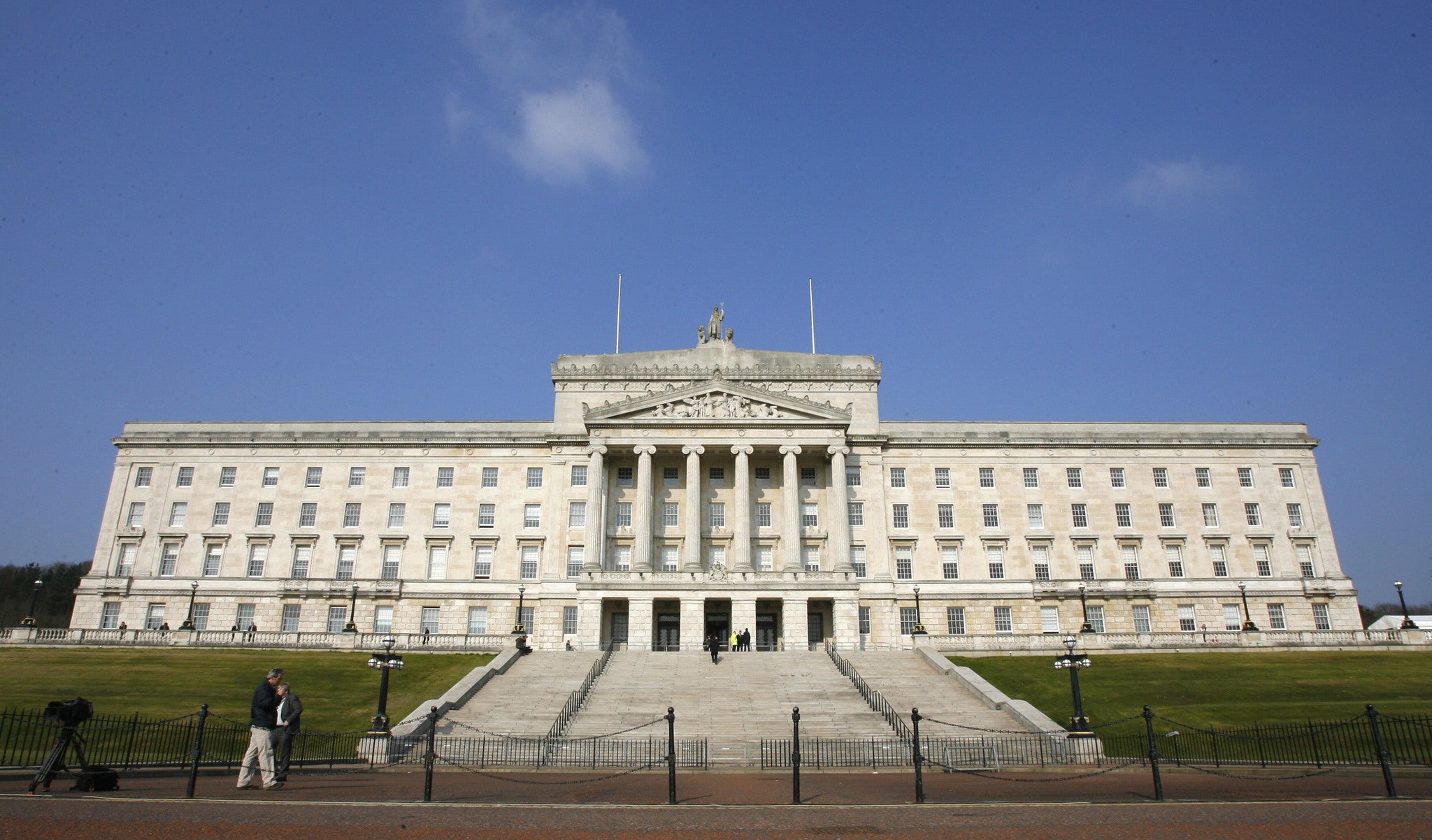Government says it cannot rule out implementing welfare reforms over head of Northern Ireland Assembly
Sinn Fein has expressed forthright opposition to any suggestion of the Government taking control of the welfare issue

Your support helps us to tell the story
From reproductive rights to climate change to Big Tech, The Independent is on the ground when the story is developing. Whether it's investigating the financials of Elon Musk's pro-Trump PAC or producing our latest documentary, 'The A Word', which shines a light on the American women fighting for reproductive rights, we know how important it is to parse out the facts from the messaging.
At such a critical moment in US history, we need reporters on the ground. Your donation allows us to keep sending journalists to speak to both sides of the story.
The Independent is trusted by Americans across the entire political spectrum. And unlike many other quality news outlets, we choose not to lock Americans out of our reporting and analysis with paywalls. We believe quality journalism should be available to everyone, paid for by those who can afford it.
Your support makes all the difference.The Government has said it cannot rule out implementing welfare reforms in Northern Ireland over the head of the devolved Assembly.
Northern Ireland Secretary Theresa Villiers said a budgetary crisis that has engulfed Stormont over the ongoing failure to introduce the changes to the benefits system had forced her to “reluctantly” consider the option of moving the required legislation at Westminster instead.
“We've got to look at different options now,” she said.
“It is not a road we want to go down but we do have to think about the options, one of which would potentially be legislating on welfare reform at Westminster.”
Sinn Fein has expressed forthright opposition to any suggestion of the Government taking control of the welfare issue. The republican party might well consider withdrawing from the Executive in such circumstances - a move that would automatically collapse the institutions.
The future of the powersharing administration was thrown into doubt yesterday after Sinn Fein and the SDLP effectively vetoed a Bill to implement welfare reforms.
The fall of the Assembly legislation left the stumbling five-party coalition in Belfast facing a budgetary black hole estimated at around £600 million.
There is now the very real prospect of a senior civil servant stepping in to take over departmental spends later in the summer, under tight financial constraints.
One alternative would be for the Government to intervene and legislate to introduce the welfare changes itself.
While the Democratic Unionists have called for such action from London, Ms Villiers acknowledged such a move would meet resistance from Sinn Fein.
“Obviously with anything that involves Westminster involvement in a devolved matter is sensitive and we would need to, before even contemplating going down that route, discuss it very carefully with all of the parties represented in the Executive,” she said.
“I accept that there would be all sorts of disadvantages with it and many would feel it wasn't the right route to go down.”
She added: “It is very much a last resort, it's not something we would want to do but I'm afraid the vote last night means we have to consider those types of options.”
Ms Villiers is due to hold individual meetings with delegations from the five parties in the next 24 hours in a bid to achieve a local accommodation.
Introducing the last Conservative/Lib Dem government's welfare reforms in Northern Ireland, after a two-year delay, was a key plank of December's Stormont House Agreement - a deal that had been heralded as resolving a range of destabilising disputes at the heart of powersharing.
The fall of the Welfare Reform Bill has now endangered other elements of the accord struck at Stormont House between the Executive parties and the British and Irish governments, such as the devolution of corporation tax powers, a major civil service redundancy scheme and new structures to address the legacy of the Troubles.
But, of more immediate concern, it poses an existential threat to the Executive, as ministers have failed to remove the burden of Treasury penalties for non-implementation, which are currently running at around £10 million a month.
Sinn Fein Deputy First Minister Martin McGuinness accused Prime Minister David Cameron of adopting a “partisan and pro-unionist” approach to the situation.
He also claimed the Government was refusing to come clean about on how multi billion pound spending cuts predicted for this parliament would impact Northern Ireland.
“The current crisis at Stormont has been created by the Tory government at Westminster and its dogmatic adherence to an agenda of austerity cuts,” he said.
“Last week I challenged Theresa Villiers to spell out the impact of the Tory government's proposed £25bn in cuts to public services and welfare on people here. She refused point blank to do so.
”And despite the enormous challenges facing the political process David Cameron has refused to meet with me or to engage in any attempt to resolve the current difficulties.
“In stark contrast to this refusal, he rushed to meet with the leaders of both unionist parties to enlist their support for his on-going assault on public services and the most vulnerable.
”The source of the enormous crisis facing the Executive is the Tory cuts agenda. That crisis is compounded and deepened by the partisan and pro-unionist stance of David Cameron."
PA
Join our commenting forum
Join thought-provoking conversations, follow other Independent readers and see their replies
Comments